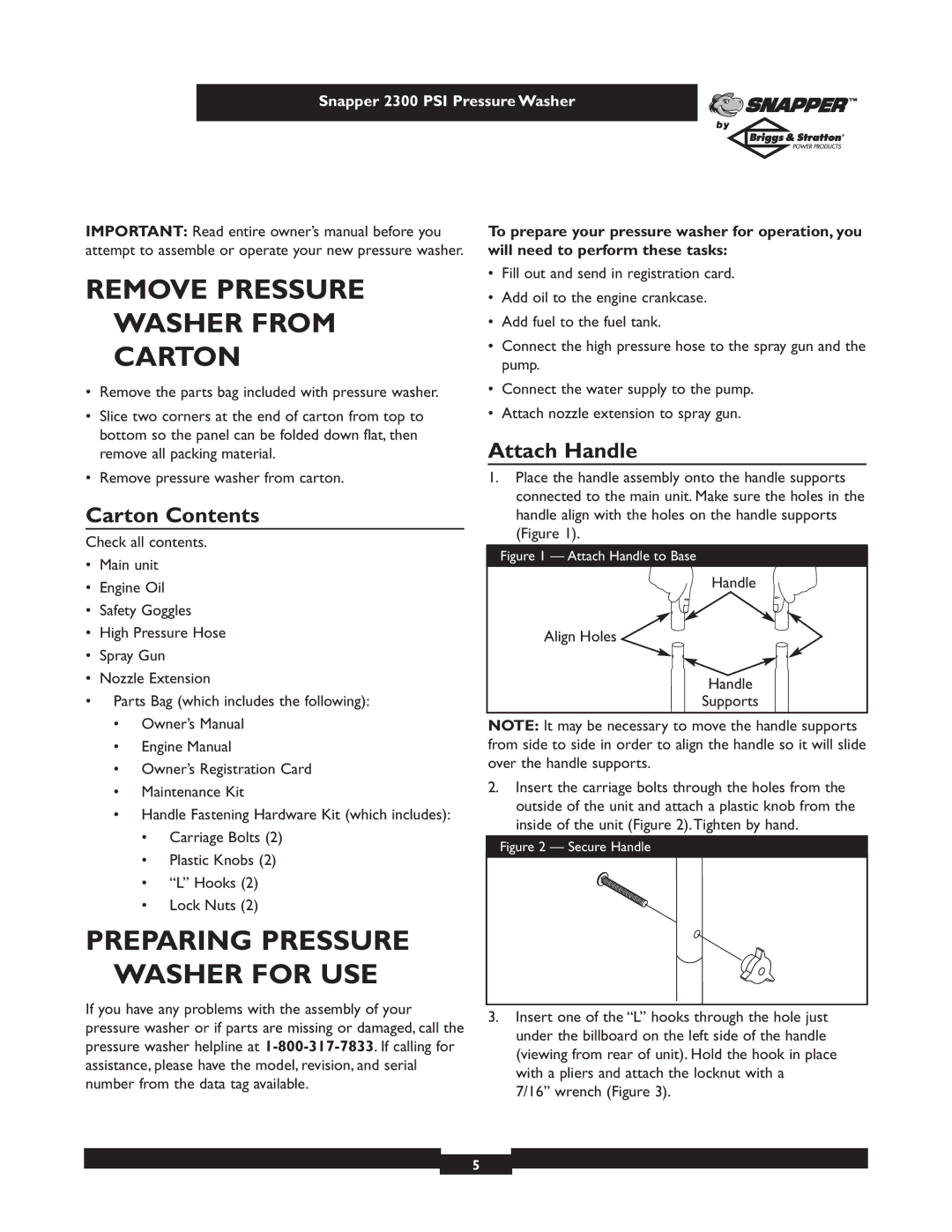
Snapper 2300 PSI Pressure Washer
IMPORTANT: Read entire owner’s manual before you attempt to assemble or operate your new pressure washer.
REMOVE PRESSURE
WASHER FROM
CARTON
•Remove the parts bag included with pressure washer.
•Slice two corners at the end of carton from top to bottom so the panel can be folded down flat, then remove all packing material.
•Remove pressure washer from carton.
Carton Contents
Check all contents.
•Main unit
•Engine Oil
•Safety Goggles
•High Pressure Hose
•Spray Gun
•Nozzle Extension
•Parts Bag (which includes the following):
•Owner’s Manual
•Engine Manual
•Owner’s Registration Card
•Maintenance Kit
•Handle Fastening Hardware Kit (which includes):
•Carriage Bolts (2)
•Plastic Knobs (2)
•“L” Hooks (2)
•Lock Nuts (2)
PREPARING PRESSURE WASHER FOR USE
If you have any problems with the assembly of your pressure washer or if parts are missing or damaged, call the pressure washer helpline at
To prepare your pressure washer for operation, you will need to perform these tasks:
•Fill out and send in registration card.
•Add oil to the engine crankcase.
•Add fuel to the fuel tank.
•Connect the high pressure hose to the spray gun and the pump.
•Connect the water supply to the pump.
•Attach nozzle extension to spray gun.
Attach Handle
1.Place the handle assembly onto the handle supports connected to the main unit. Make sure the holes in the handle align with the holes on the handle supports (Figure 1).
Figure 1 — Attach Handle to Base
Handle
Align Holes ![]()
Handle
Supports
NOTE: It may be necessary to move the handle supports from side to side in order to align the handle so it will slide over the handle supports.
2.Insert the carriage bolts through the holes from the outside of the unit and attach a plastic knob from the inside of the unit (Figure 2).Tighten by hand.
Figure 2 — Secure Handle
3.Insert one of the “L” hooks through the hole just under the billboard on the left side of the handle (viewing from rear of unit). Hold the hook in place with a pliers and attach the locknut with a
7/16” wrench (Figure 3).
5
